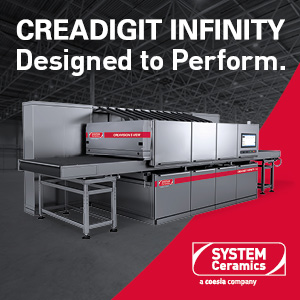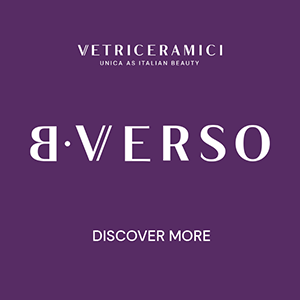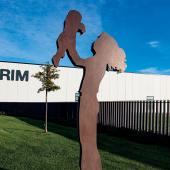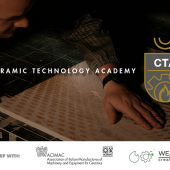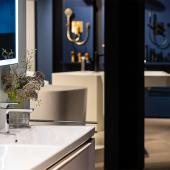"The devil and holy water" meet at Esmalglass-Itaca
A curiously-titled, thought-provoking event was held by Esmalglass-Itaca Group on 16 March to celebrate the opening of its new facility in Sassuolo.
The Spanish multinational’s newly renovated and visually-striking showroom will serve as the perfect setting for displaying its latest products, particularly large size marble-look tiles and wood, concrete, stone and metal effect surfaces.
At the heart of the facility stands a large open space devoted exclusively to research into new trends in ceramic decoration, an authentic “creative room” where the team of designers and architects are surrounded by objects, prototypes and materials of all kinds capable of providing them with ideas and inspiration for their work.
It was here that Esmalglass-Itaca’s guests had the opportunity to attend the thought-provoking conference entitled “The devil and holy water – From the temptations of upcoming commercial trends to technological innovation for a truly impeccable colour”.
First to speak was Francesco Morace, sociologist and chairman of Future Concept Lab, who captivated the audience with his reflections on aesthetics and consumer sociology. An advocate of the enormous potential of the so-called “Italian Factor”, the powerful competitive lever associated with Italian excellence, Morace offered interesting new insights into consumer trends in the ceramic sector. He argued that the Italian tile industry must focus on four paradigms to maintain its global position: sustainability and crucial values; reputation and trust; timeliness and quality; uniqueness. “We are the biggest customisers in the world,” Morace said, referring to the Italian manufacturing fabric, capable of producing a level of excellence that should not be interpreted as “luxury” but as “the ability to do something better than anyone else”.
The second part of the workshop was much more technical in nature, focusing on technological innovation in terms of the use of water in the production of digital materials for ceramics. The guest speaker was Alan Tonon, an expert in processes and odorous emissions treatment who has collaborated since 2009 with leading Italian olfactometry laboratories. Tonon illustrated the latest developments in terms of rationalisation and all-round management of chemical and odorous emissions originating from the thermal treatment of organic-based raw materials used in the ceramic industry.
Did you find this article useful?
Join the CWW community to receive the most important news from the global ceramic industry every two weeks







